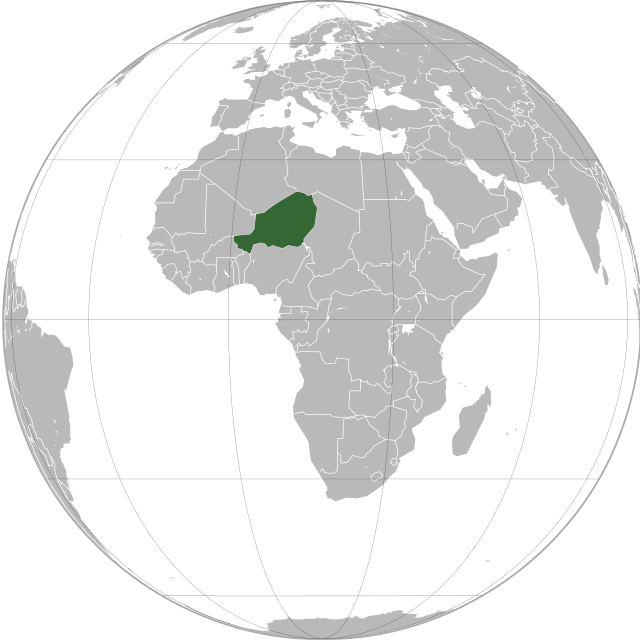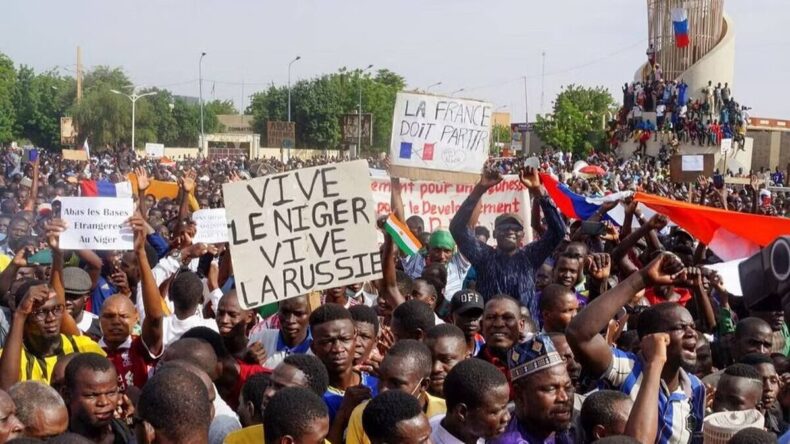Niger is a country in West Africa, officially called the Republic of Niger. Right now, Niger has a lot of things happening at once that are causing big trouble. Inside the country, there are problems with people being upset, and there’s also been a sudden change in leadership by the military. On top of that, Niger is having disagreements with other countries. All of these different issues have come together to create a really big problem that many people all around the world are paying attention to. It’s like a mix of different troubles happening all at the same time, and it’s making Niger a really important topic that people everywhere are talking about.

Unravelling the Events in Niger as of July 26
A seismic shift occurred in Niger’s political scene on July 26, 2024, when a coup took place. The country’s presidential guard moved swiftly, detaining President Mohamed Bazoum. In a remarkable turn of events, General Abdourahamane Tchiani, commander of the presidential guard, emerged as the figurehead of a new military junta. This coup, the first since 2010, marked a significant departure from the nation’s recent political history.
A Historical Perspective on Military Coups
Throughout the history of the nation, there have been instances where the military took control, like the one that happened in 2024. This particular event marked the fifth time this has occurred since the nation gained its independence from France in 1960. People from both within the country and from other parts of the world, including the United States, France, and the West African coalition
ECOWAS, have expressed strong disapproval about what happened. The effects of this takeover are not limited to the nation’s borders alone. It’s raising concerns about how stable the nation is and how it’s managing its relationships with other countries. This situation is like a cloud hanging over the nation’s stability and how it interacts with the rest of the world.
Escalating Tensions and Diplomatic Strain
In a dramatic escalation of the crisis, The Military rulers issued an ultimatum for the French, German, Nigerian, and US ambassadors to depart within 48 hours. The move came amid rising tensions over potential military intervention by ECOWAS to reverse the coup. This directive, seen as a response to perceived actions against Niger’s interests, has added a new layer of complexity to the crisis.
International Response and Implications
The demand for ambassadors’ departure has ignited a diplomatic firestorm. Paris swiftly rejected the ultimatum, underscoring its non-recognition of the military rulers’ authority. With ECOWAS also in the fray, tensions are at a boiling point, reflecting the complex dance of international politics in a region grappling with instability.
Niger’s Path Forward: Challenges and Hope
As the nation navigates this complex web of challenges, from internal unrest to diplomatic friction, the nation stands at a crossroads. The road ahead is uncertain, but the resilient spirit of its people and their determination to shape a stable, prosperous future will undoubtedly play a defining role in determining Niger’s destiny.
Conclusion: Charting a Course Through Turbulent Waters
The merging of civil unrest, a military coup, and diplomatic complications has thrust the nation of Niger into a prominent position on the global stage. This sudden convergence of challenges has turned international attention toward the country.
As Niger navigates through these intricate issues that have arisen all at once, the tenacity and resilience of its people, the wisdom demonstrated by its leaders, and the collaborative support extended by the global community will each play crucial roles in guiding the nation toward calmer waters. In the midst of adversity, the journey of Niger toward stability serves as a remarkable testament to the remarkable strength humans possess when facing difficulties together, as well as the pivotal role that international cooperation can play in shaping positive outcomes. The experiences of Niger underscore the fact that when challenges arise, unity and collaboration can be powerful tools in steering a nation toward a brighter and more secure future.













